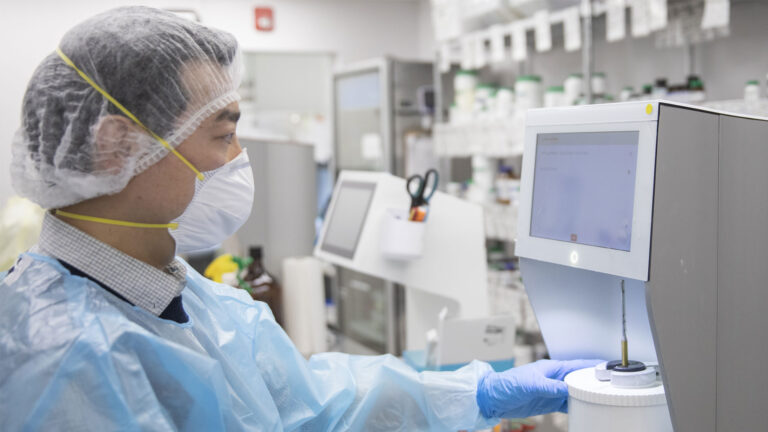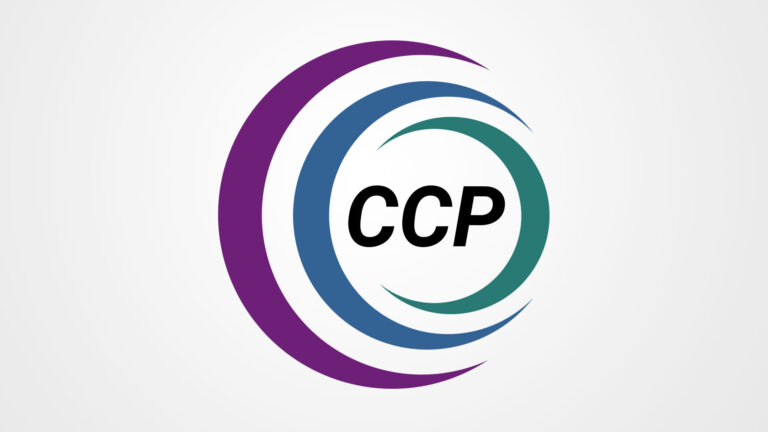It’s been two months since ACP’s prohibition on inducements came into effect. To complement the information available on pharmacists.ab.ca/inducements, we wanted to provide additional clarity for pharmacy professionals regarding ACP’s interpretation and application of the amendments to the Code of Ethics and the Standards of Practice for Pharmacists and Pharmacy Technicians.
The Code of Ethics and Standards of Practice for Pharmacists and Pharmacy Technicians prohibits pharmacists and pharmacy technicians from entering into any arrangement with a patient where the pharmacist or pharmacy technician provides an inducement to the patient that is conditional on the patient obtaining a drug or professional service. The prohibition is broad.
Principle 1.13 of the Code of Ethics prohibits each pharmacist and pharmacy technician from entering:
… any arrangement with a patient where I provide an inducement to the patient that is conditional on the patient obtaining a drug or professional service from me.
Standard 1.18 of the Standards of Practice for Pharmacists and Pharmacy Technicians reads:
A regulated member must not offer or provide or be party to the offering or provision of an inducement to a patient where the inducement is offered or provided on the condition that the patient obtains:
(a) a drug product, or
(b) a professional service
from the regulated member or licensed pharmacy.
The inducement prohibition is supported by the Standards for the Operation of Licensed Pharmacies and the rules relating to proprietors contained in the Pharmacy and Drug Act. As a result, the prohibition is binding not only on pharmacists and pharmacy technicians, but also on licensees and proprietors of pharmacies. Significantly, proprietors cannot do or require a pharmacist, pharmacy technician, or licensee to do anything or be involved in anything that contravenes the Code of Ethics or Standards of Practice.
It is not acceptable to try to avoid the inducement prohibition through creative strategies. Principle 10(1) of the Code of Ethics requires pharmacists and pharmacy technicians to “comply with both the letter and the spirit of the law that governs the practice of pharmacy and the operation of pharmacies.” This principle is reinforced in the Standards of Practice for Pharmacists and Pharmacy Technicians (Standard 1.1 and 1.2). Importantly, the Standards make clear that the “law governing the practice” includes not only the statutes and the regulations but also the Code of Ethics and Standards of Practice for Pharmacists and Pharmacy Technicians and Standards for the Operation of Licensed Pharmacies. The obligation to comply with the spirit and intent of the law is also made binding on licensees and proprietors under the Standards for the Operation of Licensed Pharmacies (Standard 1.1 to 1.3) and the Pharmacy and Drug Act, sections 1(2), 10(1)(a), (2) and (3), and 11(2) and (4).
While the effective date of the prohibition was delayed by Order of the Court of Queen’s Bench shortly after being passed in 2014, ACP successfully appealed to the Court of Appeal. The Court of Appeal agreed that the college had acted reasonably and within its authority when amending its Standards and Code of Ethics, and upheld the inducement prohibition. Therefore, effective September 22, 2017, the inducement prohibition came into effect.
The College has now moved to implement the inducement prohibition. By now each pharmacist, pharmacy technician, licensee, and proprietor should be aware of the inducement prohibition and be complying with it.
To this point, the College has dealt with issues related to the inducement prohibition by reminding pharmacists, pharmacy technicians, licensees, and proprietors to comply. Where there has been prompt compliance, the College has not found it necessary to take further steps. We hope that this article further informs pharmacists, pharmacy technicians, and proprietors about our interpretation and application of the amended Standards so as to provide common understanding. In providing this, we will increasingly move to a compliance and enforcement phase, having communicated these interpretations and expectations.
To clarify our interpretation and application of the amended Standards and Code of Ethics, following is a summary of directions that have been provided since the amendments came into effect:
- A sign at a pharmacy in a co-operative suggested that co-operative members earn equity and cash back on the “full price of prescriptions.”
The College’s view was that this comprised an inducement and is prohibited. The co-op complied promptly with a request that the sign be removed.
The College understands that co-ops are allowed to provide patronage returns or dividends to their members under the Co-operatives Act. The College cannot object to patronage returns that are general and based on overall economic performance of a co-op, including meeting solvency requirements and maintaining reserves for growth and improvement of services to members. (This would be similar to a shareholder of a publicly traded pharmacy chain earning dividends on their shareholdings.) However, there cannot be the offer of, or provision of, equity or cash “conditional on a patient obtaining a drug or professional service.” The Co-operatives Act does not mandate specified equity or cash back on specific products and services. In the College’s view patronage returns are not linked to purchases of a specific product and service like “prescriptions” but must instead be determined based on the entire range of purchases undertaken by a member of the co-op. Patronage dividends or returns that are tiered to offer or provide inducements on the provision of drugs or professional services also contravene the inducement prohibition.
- A pharmacist made a general offer of $500 credit per year to cover any prescription drug, over-the-counter product, or healthcare product they get from his pharmacy.
The College’s view was that this comprised an inducement and is prohibited. The pharmacist stopped the program.
The pharmacist argued that the offer was permitted under section 1.19 of the Standards of Practice of Pharmacists and Pharmacy Technicians, which allows gifts for compassionate reasons and that will support the health care of a patient. The College reminded the pharmacist that the exemption in Standards 1.19 is narrow and requires an individual assessment of the circumstances of each patient to whom a gift is provided. Section 1.19 cannot be used to justify a general offer. Where section 1.19 is used, the College expects to see an individualized, professional assessment by a pharmacist that is documented in the patient records.
- A pharmacy chain offered points for patients who signed up to receive an email notice from the pharmacy when vaccinations became available at their pharmacies.
The College’s view was that this comprised an offer of an inducement on a professional service or was a strategy designed to skirt the prohibition on inducements. The College’s view was that it was prohibited. The pharmacy chain stopped the program.
The College reminds all members that “professional service” in the inducements prohibition is defined as any service that falls within the practice of pharmacists or the practice of pharmacy technicians. The practice of pharmacists includes assisting and advising clients and patients and undertaking restricted activities including providing drugs for sale and selling drugs and administering vaccines. In short, the offer related to and was exclusively focused on the professional services of selling a drug (the vaccine) and providing assistance and advice in respect of that drug.
The College also noted that in its view this offer sought to indirectly do, what could not be done directly under the Code of Ethics and the Standards of Practice for Pharmacists and Pharmacy Technicians. This sort of attempt to bypass a section of the Code of Ethics or Standards is addressed by the Code of Ethics, which requires compliance with “both the letter and the spirit of the law that governs the practice of pharmacy and the operation of pharmacies.” This principle is reinforced in both the Standards for the Practice of Pharmacists and Pharmacy Technicians and the Standards for the Operation of a Licensed Pharmacy.
The College does not object to programs where patients sign up for reminders in relation to drugs and professional services, as long as there are no inducements associated with the programs.
- A pharmacy proposed to offer a gift card to patients who received diabetes test strips on prescription from the pharmacy.
The College’s view was that this comprised an inducement on a professional service. The pharmacy stopped the offer.
The College noted that where a patient receives a prescription for test strips, a professional service is provided by the pharmacist. The inducement prohibition covers professional services. Therefore, where a product is provided pursuant to a prescription an inducement cannot be offered or provided.
This applies to more than prescriptions. Inducements cannot be offered or provided for any healthcare product/aid/device, over-the-counter medication, or schedule 3 drug when the professional services of a pharmacist or pharmacy technician are required. Where a professional service is required, inducements would be inappropriate (Standard 1.18b). However, if these products are self-selected as nonprescription products, the offering or provision of an inducement may be acceptable. Examples of professional services include, but are not limited to, the following:
- entering a healthcare product/aid/device, over-the-counter medication, or schedule 3 drug on a patient record; and
- compounding over-the-counter medications.
Pharmacy professionals are encouraged to continue creating comprehensive health records that include all services and products (scheduled or unscheduled) provided to a patient.
- Some pharmacies have been providing special offers to users of branded credit cards for points in exchange for paying for prescriptions with the branded credit card.
The College’s view is that it is a contravention of the inducement prohibition for a pharmacy or its proprietor to enter into an arrangement with a credit card provider under which points or other benefits are offered or provided to credit card users that are specifically conditional on the purchase of drugs or professional services at a specific pharmacy or pharmacies. An arrangement between a pharmacy or its proprietor and a credit card provider in which the credit card provider then offers benefits to credit card users for the purchase of drugs or professional services at a pharmacy is either a direct breach of the inducement prohibition or an attempt to bypass the inducement prohibition that contravenes the requirement in the Code of Ethics that regulated members, licensees and proprietors comply with “both the letter and the spirit of the law that governs the practice of pharmacy and the operation of pharmacies.”
The College recognizes that it does not regulate credit cards that make offerings and provide services entirely independently of the pharmacy or its proprietor. If a credit card provider chooses to offer points on outstanding balances of their clients, that is not a matter that is the subject of the College’s jurisdiction. However, where proprietors or licensees enter into an agreement with a credit card provider to offer or provide points conditional on the purchase of a drug or pharmacy service that is within the jurisdiction of the College and contrary to the inducements prohibition.
The College reminds registrants and proprietors to be scrupulous in complying with the inducement prohibition. As the amended Standards and Code of Ethics have been in effect for two months, increasingly allegations of noncompliance will be forwarded to the Complaints Director for investigation.
Originally published in the November 22, 2017, issue of The Link




